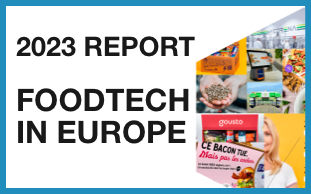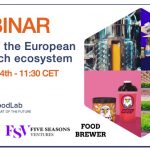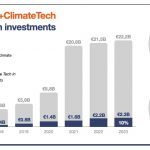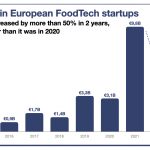While many startups have tried to create a business model focused on consumers sharing meals, Olio has a different approach. Here, people and businesses are giving food (and non-food items) for free. You log into the app, and you can find items around your location.
The interesting twist from apps such as Too Good To go is that it avoids the friction of the consumer that goes into the store to “require” its free food (a pain point both for the store employees and clients, and the user). Olio connects food businesses (such as Tesco) to volunteers who will pick up otherwise wasted food items in bulk from the store and then operate as distributors through the app.
Olio earns money both from stores it partners with and from premium users that get charged to have access to more local “deals”.
DigitalFoodLab: We don’t believe in services linking consumers looking to share meals (such as Shef, which recently raised $20M or MenuNextDoor which raised $2M in 2016 – a big deal at the time – and is now closed). Indeed, it is hard to think of how to scale it while keeping “cooks” motivated. Also, creating money transactions between unprofessional cooks and consumers has many downsides (think about health regulations and the unhappy professionals that see as a competition).
However, Olio does things radically differently with its concept of a “free food sharing app”, as it removes the barrier of price between consumers sharing food. Removing the issue of consumers going into stores to claim their soon-to-be wasted food is a huge win. We are really keen to see how things go and how Olio will build a model out of free interactions between consumers.







